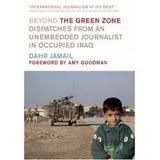-
 ___________________________________
___________________________________
 ___________________________________
___________________________________
 This work is licensed under a Creative Commons Licence.
This work is licensed under a Creative Commons Licence.
Twitter Updates
Tweets by https%3Atwitter.comAnnamarieBohusVisit my page at: Peace and Collaborative Development Networking
-
Recent Posts
Archives
- March 2018
- January 2018
- April 2016
- January 2016
- February 2015
- November 2014
- October 2014
- September 2014
- August 2014
- February 2014
- January 2013
- July 2009
- March 2009
- February 2009
- January 2009
- December 2008
- November 2008
- October 2008
- September 2008
- August 2008
- July 2008
- June 2008
- May 2008
- April 2008
- March 2008
- February 2008
- January 2008
- December 2007
- November 2007
- October 2007
- September 2007
- August 2007
- July 2007
- June 2007
- May 2007
- April 2007
- March 2007
- February 2007
- January 2007
Blog Stats
- 146,716 hits
Top Posts
- Facing uncertain future, fossil fuel workers want retraining in renewables
- PLEASE SHARE CUT TIM HORTONS Till Company Stops Fr…
- Why Don't We Have PR Already?
- Meditation
- Meditation
- Water Wars
- This year I will wear a poppy for the last time ~ an essay by Harry Leslie Smith
- https://twitter.com/AnnamarieBohus/status/53117347…
- https://twitter.com/profwolff/status/5315254160752…
- Why we must defend Canada
Subscribe Me!
Recent Comments
verbena19 on … internet advertising… on Meditation Listeria epidemic sc… on Listeriosis toll grows, number… Council of Canadians… on Council of Canadians: Action… gwmarkle on Why we must defend Canada May 2024 M T W T F S S 1 2 3 4 5 6 7 8 9 10 11 12 13 14 15 16 17 18 19 20 21 22 23 24 25 26 27 28 29 30 31 MISSION UNACCOMPLISHED by Tom Engelhardt
1356
- Anyone But Harper **
- Barriere Lake Solidarity* (English site)
- BilderbergBook.com
- Bluejay’s blog
- Campagne David Orchard Campaign ***
- Canadian Centre for Policy Alternatives (CCPA)
- Ceasefire Insider Blog
- CENSORED NEWS
- COA News – Independent News Portal
- Cold Water Flat (new blog on WP)*
- Crow’s Feet
- Dangerous Creation
- DanielEstulin.com
- Department of Culture **
- Elizabeth May’s blog
- Empire Burlesque – Chris Floyd Online
- Global Network Against Weapons & Nuclear Power in Space
- Hal Turner Show
- History News Network
- Joe Bageant: Deer Hunting with Jesus
- Lady Broadoak Visionary Planetary Healing Tutorial
- Mike Whitney’s blog (The Smirking Chimp)
- My Intellectual Odyssey ***
- Native American Times
- NDP Left
- NUCLEAR FREE ZONE
- Organizing Notes
- Pacific Free Press – Hard Truths for Hard Times
- Progressives for Dion: Alerts
- Progressives for Stéphane Dion
- Protest Barrick.net
- Realizing Ordinary
- Ron Paul’s Campaign for Liberty
- Solidarité Lac Barrière** (French site)
- Steve Anderson’s blog
- Stevie Cameron
- STOP THE RADIATION!
- The Boundary Bay Morning Steamer ***
- The Harper Index
- The Scott Ross***
- The Shock Doctrine: Naomi Klein’s website
- The Smirking Chimp
- The Spirit Wrestlers
- The Stop Stephen Harper Blog ***
- The Turner Report
- ThisCanadian
- TPM Cafe/Talking Points Memo
- Village of Ordinary
- Village of Ordinary – Journal of an ordinary life in a peaceful land
- Vote for Environment **
- Wired Blog Network
- Wired Blog Network: Threat Level **
Armed Madhouse
Awards
Beyond the Green Zone: Dispatches from an Unembedded Jo
Blogroll - Media - Other Interesting Sites


- A POSITIVE FUTURE
- A Step Apart ***


- ACLU
- Al Jazeera (English)
- Alter Net

- Amnesty International

- Amnesty International USA (AIUSA)
- Antiwar.com***
- AP Breaking News
- Asia Peace Center – Aspectasia.org
- Audacious Ontology
- AVAAZ.org
- Baghdad Burning
- BBC







- Blogmonkey**


- BREITBART.COM
- BuzzFlash
- CAAB.org (UK)
- CAIA


- Canadian Cynic
- Canadian Department of Peace
- Canadian Dimension
- Canadian Peace Alliance
- Canadian Pugwash
- Canadian Voice of Women for Peace
- Canuck Attitude



- Ceasefire.ca
- chomsky.info: The Noam Chomsky Website
- Chris Floyd – Empire Burlesque

- City on a Hill Press**
![Campaign for Innocent Victims In Conflict[CIVIC] CIVIC](http://i160.photobucket.com/albums/t193/Annamarie_033/CIVIClogo.gif)

- Coalition of Women for Peace **


- Cold Water Flat
- Common Dreams News Center
- Common Ground

- Conscience Canada
- ConsortiumNews.com

- CorpWatch

- counterpunch

- Crooks and Liars
- Crow’s Feet

- Dahr Jamail’s MidEast Dispatches
- Dahr Jamail’s weblog***
- Daily Kos
![British daily newspaper Daily Mail [UK]](http://i160.photobucket.com/albums/t193/Annamarie_033/mHead2.gif)

- Defense Committee for Malalai Joya***

- Democrats.com

- DeSmogBlog.com
- Disarmament Insight

- Disarming Conflict





- Feminist Peace Network *


- FLYBYNEWS
- Foreign Policy In Focus (FPIF)
- Fred Williams’ Web Site *

- Friends of Grassy Narrows
- Further Ramblings of a N. Irish Magyar
- Garth Turner, MP
- Gather the Women **

- Global National News.ca
- Global Research.ca


- Globe and Mail

- Grandmothers for Peace International **
- Green Assassin Brigade

- Greg Palast.com

- Haaretz Daily Newspaper Israel


- HALF MUPPET, HALF MUCUS *

- HarperIndex.ca


- hazel8500
- HCSW
- HEATHER WOKUSCH
- Heather Wokusch – MySpace**
- Heather Wokusch on YouTube *
- History News Network
- Homes Not Bombs
- Honor Six Nations






- IMEMC NEWS

- IN THESE TIMES



- Indigenous Peoples
- Information Clearing House
- Infowars.com **

- INTEGRATE THIS! SPP


- International Alert

- Internationally Known **
- IPPNW

- IRC – Americas Program
- IRC – Right Web
- ISARC
- Israel Blog Directory (Blog Flux)
- JimBobbySez ***
- Juan Cole: Informed Comment
- KAIROS


- LewRockwell.com

- Liblogs.ca
- Macleans.ca
- MADRE
- Make Affluence History
- MatthewGood.org
- MediaGuardian.co.uk
- MichaelMoore.com***
- MIDDLE POWERS INITIATIVE
- Mike’s Blawg
- Ministry of Love



- MNN: Mohawk Nation News

- Mother Jones
- Musicalchef***
- MY BLAHG

- Native American Times
- Native Sovereignty – Letter Writing



- News Dissector Blog

- nitroglycol *
- Nitroglycol’s mad, mad, mad, mad world


- No One Is Illegal MONTRÉAL
- Nonviolent Peaceforce

- OCAP
- oldephartteintraining***



- Organizing Notes **
- Organizing Notes*
- p m carpenter’s commentary***

- Palestine Friend*
- Palestine vs Israel
- Palestinian Assocation of Critical Care Services
- Para Justicia Libertad!

- Peace and Collaborative Development Networking


- Peace Takes Courage ***
- Peace Women **

- peacepalestine

- Peter Julian’s Website: Take Action – Help Stop Deep Integration!!

- Polaris Institute


- PRISON PLANET.COM

- Progressive Democrats of America (PDA) blog **
- Pugwash Conferences (Canadian)
- Queendom of Hawaii ****
- Queendom of Hawaii: CafePress.com
- rabble.ca

- RAPS – Master Calendar
- Rational Reasons **
- Realizing Ordinary



- Reuters AlertNet

- Rolling Back the Tide of Extremism, One Post at a Time
- Rootless Cosmopolitan **
- Rose Covered Glasses


- SCAW
- Schenandoah Fund ***
- School of the Americas Watch (SOAW.org)
- Scott’s DiaTribes
- Sierra Club of Canada
- Sketchy Thoughts
- Sounlight Foundation: Insanely Useful Websites (US)

- STAND UP Against Poverty

- Stevie Cameron’s blog




- Straight Goods
- Students Against Climate Change (SACC) ***
- sudanreeves.org***

- Taiga News – The First Perspective
- TAKE ACTION ~ Help Stop Deep Integration ~ Support NDP Motion and Sign Petition!!
- Tart Cider
- Telegraph co. UK
- Texas A & M University *

- The Angry Arab News Service
- The August Review

- The Budapest Sun Online

- The Conscious Earth

- The Cylinder
- The Daily Star – Lebanon
- The Daily Star Egypt
- The Democrat’s Diary
- The Dominion
- The Fourth World is Right Here*

- The Hamilton Spectator
- The Harper Index
- The Huffington Post

- The Jerusalem Post
- The Nation Institute
- The Nation Magazine

- The New York Observer’s Mondo Weiss

- The Peace Alliance ***

- The Progressive
- The Quakers’ Colonel ***
- The Real News****
- THE SEED LIFTING UP
- The Sleveen Institute ***
- The Smirking Chimp

- The Stop Stephen Harper Blog
- The story of a bike and a stubborn cyclist
- The Turner Report

- The Vanity Press
- The Village Voice
- The War in Context

- The Will to Truth



- TomPaine.com[mon sense]


- TOWARD FREEDOM

- truthout.org
- Ubuntu Linux Journey*
- UNIFEM – A Portal on Women, Peace & Security



- Unminds Must Fear**
- UnOriginal Gangster.com

- Valenzuela’s Veritas

- verbena-19 old Blogger site & archives

- Video Vox ***
- Village of Ordinary
- Village of Ordinary – Journal of an ordinary life in a peaceful land

- Voices In The Wilderness (wise prince)



- Walter Reed **
- While the Earth Burns

- Wild Wilderness Blog
- WildDogRoad***
- Woman At Mile 0
- Women’s International League for Peace and Freedom **

- World Federalist Movement – Canada


- Writings of J. Todd Ring **
- Wu Wei

- YayaCanada.com
- ZNET
Bread and Roses
Conscience Canada
Conservation International - Stop the Clock
Free Kareem.org
HAWAII'S STORY
Human Rights Blogs
Independent Media: independent journalism/music/books/f
INTEGRATE THIS!
International Rally Against War in Iraq
Internet/
Iraq Veterans Memorial
My Non-Partisan Credentials
PEACE MOM: A Mother's Journey through Heartache to Acti
Site Meter
Space for Peace
SUPPORT OUR TROOPS - Bring 'em Home!
TAKE ACTION ~ Help Stop Deep Integration ~ Support NDP
Take the AlertNet Quiz
The New Peace Lobby
Thinking Blogger Award
-




Support The Pesticide Bylaw
Visit: www.gardensoffdrugs.com
STOLEN CONTINENTS: 500 Years of Conquest and Resistance in the Americas

 Spiritualist Resources.com: Lots of Spiritualist Directories, Meditations, Articles, Resources, etc.
Spiritualist Resources.com: Lots of Spiritualist Directories, Meditations, Articles, Resources, etc.

 Live Bookmarks
Live Bookmarks BBC NEWS
BBC NEWS- Huge manhunt after French prison officers killed in ambush
- Protests as Georgia approves controversial 'foreign agent' law
- Trump lawyer attacks Cohen's credibility in hush-money trial
- Co-op Live arena finally opens doors after delays
- Nobel Prize winning author Alice Munro dies aged 92
- First portrait of King since coronation unveiled
- Russia must pay for Ukraine rebuild, Blinken says
- Israel and Egypt row over reopening Rafah border crossing
- Bad behaviour shuts Dublin-New York portal
- Three in court over alleged plot to attack Jewish community
NO HUMAN BEING IS ILLEGAL
Top Clicks
- None
Flickr Photos
-
Activism:civil disobedience/rallies/letters/petitions Afghanistan Amnesty International Bush's GWOT Canada/Canadians Canada: Ontario Canadian Government/Stephen Harper/Conservative Party Council of Canadians/Canadian Sovereignty Dahr Jamail/MidEast Dispatches Environmental issues/global warming/climate Films/documenaries/ George Bush/Bush Administration/American Empire Human Rights Indigenous People/First Nations/Aboriginals Iran Iraq/Iraq War Middle East Neocons/Neoliberals News/Commentary/Opinion News/reports News and Commentary North American Union: SPP/Integration/TILMA Nuclear Disarmament/NPT/APEC Poverty/Make Poverty History/ISARC/OCAP Tom Engelhardt/TomDispatch/Tomgrams Toronto/GTA/S.Ontario U.S. Politics/Foreign Policy Uncategorized USA US Military/Pentagon
- Action Alerts activism Activism: letters/petitions Add new tag Afghanistan Americans Barack Obama Bush's GWOT Canada's election 2008 Canada's First Nations Canada's sovereignty Canada/Canadians Canadian Government/Stephen Harper/Conservative Party Canadian sovereignty Canadian uranium mining climate change corporate fraud Environmental hazards/contaminants/pollution Environmental issues/global warming/climate change events financial markets food/water contamination George Bush/Bush Administration George Bush/Bush Administration/American Empire Henry Paulson/US Treasury Secretary Hiroshima & Nagasaki Commemorations Human Rights Human Rights/human rights abuses Indigenous People/First Nations/Aboriginals Information Clearing House (ICH) Internet/YouTube Iraq/Iraq War Israel/Palestine John McCain mainstream media McGuinty Government/Ont. Liberals Middle East NAFTA neocons News & Commentary North American Union: SPP/Integration/TILMA oil/gas/gasoline/natural gas/ oil prices Omar Khadr Peace poverty propaganda Robert Lovelace Six Nations social justice SPP/NAU Stephen Harper Stéphane Dion Tom Engelhardt/TomDispatch/Tomgrams Toronto Toronto/GTA/S.Ontario toxic environment USA USA's financial crisis USA's wars US economic crisis/recession/depression US economy US financial crisis US Military US Military/Pentagon US Pentagon US politics US war resisters US wars for oil videos Wall Street and Washington Wall Street banksters war water writers/poets/artists/performers
a
Pages
Twitter Updates
Tweets by AnnamarieBohus




























Tomgram: Michael Schwartz, Twenty-First-Century Colonialism in Iraq
July 10, 2009July 9, 2009
Tomgram: Michael Schwartz, Twenty-First-Century Colonialism in Iraq
One of the earliest metaphors President George W. Bush and some of his top officials wielded in their post-invasion salad days in Iraq involved bicycles. The question was: Should we take the “training wheels” off the Iraqi bike (of democracy)? Then-Secretary of Defense Donald Rumsfeld, for example, commented smugly on the way getting Iraq “straightened out” was like teaching your kid to ride a bike:
“They’re learning, and you’re running down the street holding on to the back of the seat. You know that if you take your hand off they could fall, so you take a finger off and then two fingers, and pretty soon you’re just barely touching it. You can’t know when you’re running down the street how many steps you’re going to have to take. We can’t know that, but we’re off to a good start.”
That image (about as patronizingly colonial as they come) of the little pedaling Iraqi child with an American parent running close behind, was abandoned when around the first corner, as it turned out, was an insurgent with an rocket-propelled grenade. Many years and many disasters later, though, Americans, whether in the Obama administration, the Washington punditocracy, or the media are still almost incapable of being patronizing when it comes to Iraq. Take a typical recent piece of “news analysis” in the New York Times by a perfectly sharp journalist, Alissa J. Rubin. It was headlined in print “America’s New Role in Iraq Prompts a Search for Means of Influence” and focused, in part, on Vice President Joe Biden’s recent trip there supposedly to “assuage” Iraqi feelings that they are being “moved to the bottom shelf.”
Rubin writes (and this sort of thing has been written countless times before) that the Americans are now in search of a “new tone” for their dealings in that country. (In the Bush years, this was often called — in another strange imperial metaphor — “putting an Iraqi face” on things.) “They have,” she comments, “a reputation for being heavy-handed, for telling Iraqis what to do rather than asking what they want.” But of course, as the piece makes clear, whatever his tone, Biden arrived in Iraq to tell Iraqis what they should do — or as she puts it, to try to “solve” the “troubles… that stymied three previous ambassadors and President George W. Bush”: continuing sectarian animosities, the passage of an Iraqi oil law, and the Kurdish problem.
These, it seems, are still our burden and we really can’t imagine it any other way. As the Iraqis quoted in Rubin’s piece make clear, the dominant role played by the U.S. is resented by the occupied — especially the elite — who have contempt for the occupiers, even if they find it hard to imagine life without them.
I mention this only because the tone of American writing and thought on Iraq has always been tinged with what Michael Schwartz, TomDispatch regular and author of a superb study, War Without End: The Iraq War in Context, says is a deeper colonial urge, one that unfortunately may not be fading, even as discussion of a U.S. military withdrawal from Iraq grows. (Catch a TomDispatch audio interview with Schwartz by clicking here.) Tom
Colonizing Iraq
The Obama Doctrine?
By Michael Schwartz
Click here to read more of this dispatch.
Recent Posts
2 days ago…
Tomgram: Are Afghan Lives Worth Anything?
1 week ago…
Tomgram: Chalmers Johnson, Baseless Expenditures
1 week ago…
Tomgram: Dahr Jamail, A Secret History of Dissent in the All-Volunteer Military
1 week ago…
Tomgram: Dilip Hiro, The Weeks of Living Dangerously
Recent Highlights
2 weeks ago…
Tomgram: Ira Chernus, West Bank Settler Violence and the Path to Peace
3 weeks ago…
Tomgram: Greg Grandin, The Collapse of America’s Imperial Car Industry